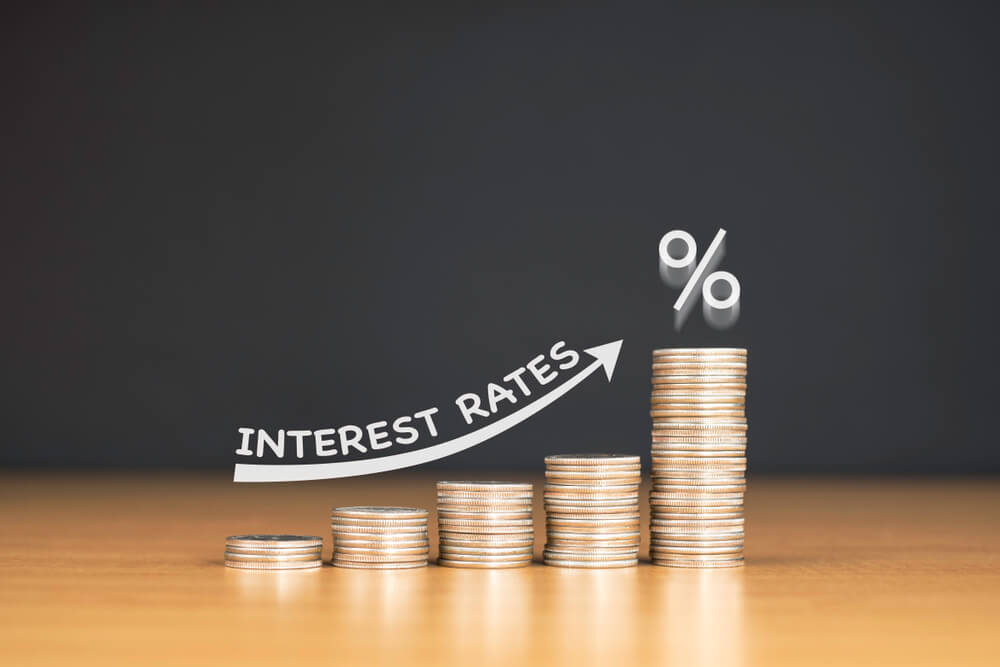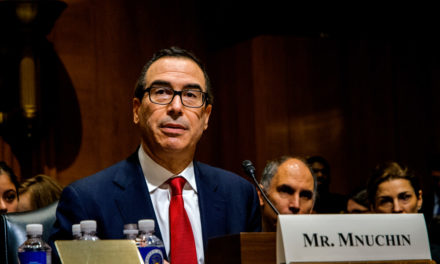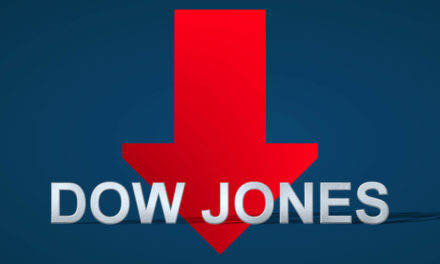Stocks gave up an early rally and took a dive in afternoon trading after the Federal Reserve’s raised interest rates again and said it plans to keep raising them next year, and more in Wednesday’s Stock Market Update.
The U.S. central bank also said it wouldn’t make any changes in allowing its large bond portfolio to shrink. The Fed’s announcements didn’t appear to go as far as some investors had hoped in signaling a sharper slowdown in its credit tightening policies.
The afternoon sell-off pulled the market to its lowest level since September 2017.
The Dow Jones Industrial Average fell 351 points by closing time and lost 513 points at its lowest point.
Before the Fed’s decision was announced at 2 p.m., it was up 381 points. Major indexes are down more than 1 percent. Bond prices rose, sending yields sharply lower. Bond yields are benchmarks for many kinds of long-term loans including mortgages.
The Fed raised its short-term interest rate for the fourth time this year and suggested it will go slower in raising rates next year.
The quarter-point hike, to a range of 2.25 percent to 2.5 percent, lifts the Fed’s benchmark rate to its highest point since 2008. The increase will mean higher borrowing costs for many consumers and businesses.
The Fed is now forecasting two increases in rates in 2019 instead of three. The central bank now expects the long-term level of its main interest rate will be 2.8 percent, down from 3 percent.
Bond prices rose following the Fed’s announcement. The yield on the 10-year Treasury note fell to 2.76 percent from 2.84 percent immediately before the Fed’s announcement. That’s a substantial move for that benchmark lending rate.
David Kelly, chief global strategist for JPMorgan Funds, said investors aren’t reacting to the Fed’s moves on a day-to-day basis. He said the Fed’s steps on Wednesday increase the chances the economy will continue to grow steadily.
“The Fed behaving in a very prudent, balanced way increases the possibility of a very balanced expansion” continuing, Kelly said.
Internet, technology and consumer-focused companies are down while a partial recovery in oil prices is pulling energy companies higher following huge losses a day earlier.
Facebook fell after the New York Times reported that the social media network gave companies more access to users’ personal data than it has previously said. The report said Facebook had arrangements with more than 150 companies including Microsoft, Amazon, Spotify and Netflix that let different companies read, write and delete users’ private messages, see the names of a user’s friends or their news feeds without their consent.
Separately, the District of Columbia sued Facebook for allowing Cambridge Analytica, a data-mining firm working for the Trump campaign, to improperly access data from as many as 87 million Facebook users.
Facebook lost 6.2 percent to $134.78. It’s down 38 percent since late July on concerns about a slowdown in user growth, multiple privacy and safety scandals, as well as the possibility of increased regulation in the future.
FedEx sank after saying international shipping, especially in Europe, fell in its latest quarter, while the U.S.-China trade dispute is also affecting its business. The shipping company posted a smaller profit than analysts expected and said it will cut spending and offer buyouts to some workers to help make up for the shaky results.
“The peak for global economic growth now appears to be behind us,” Chief Marketing Officer Rajesh Subramanian said in a conference call with investors.
FedEx stock lost 11.1 percent to $164.39, and it has dropped 34 percent this year. Rival UPS lost 2.7 percent to $94.67 and has slumped 20 percent in 2018.
Oil prices turned higher after plunging a day earlier on worries about rising supplies and weakening global growth, which could weigh on demand.
Benchmark U.S. crude climbed 2.1 percent to $47.20 a barrel in New York. It dropped 7 percent Tuesday and closed at a 16-month low, and has fallen almost 40 percent since Oct. 3. Brent crude, used to price international oils, rose 1.7 percent to $57.24 a barrel in London.
Wholesale gasoline rose 2.7 percent to $1.39 a gallon and heating oil added 2.9 percent to $1.81 a gallon. Natural gas lost 2.9 percent to $3.73 per 1,000 cubic feet.
Wednesday’s recovery helped energy company stocks, which are trading at their lowest levels since early 2016.
Drugmakers GlaxoSmithKline and Pfizer said they will combine their consumer product businesses, bringing Pfizer’s Advil pain medicine and Centrum supplements together with Glaxo’s Sensodyne toothpaste. GlaxoSmithKline of Britain will own two-thirds of the combined company. Its stock gained 1.2 percent to $37.54 while Pfizer fell 0.8 percent to $42.07.
STOCK MARKET UPDATE
- The Dow fell 1.5 percent to 23,324. The S&P 500 skidded 39 points, or 1.5 percent, to 2,506.
- With technology stocks down sharply, the Nasdaq composite gave up 147 points, or 2.2 percent, to 6,636.
- The Russell 2000 index, which has suffered broader declines than the rest of the market, fell 30 points, or 2.2 percent, to 1,346.
- The dollar was down for the day and recovered slightly after the Fed’s move. The dollar slipped to 112.36 yen from 112.53 yen. The euro rose to $1.1368 from $1.1357 and the British pound dipped to $1.2621 from $1.2639.
- European stocks rose after Italy’s government reached an agreement with the European Commission on its budget plans. The Italian FTSE MIB jumped 1.6 percent. Britain’s FTSE 100 rose 1 percent while Germany’s DAX added 0.2 percent and the CAC 40 in France rose 0.5 percent.
- Japan’s Nikkei 225 index fell 0.6 percent and while South Korea’s Kospi rose 0.8 percent. Hong Kong’s Hang Seng was 0.2 percent higher.
- Gold rose 0.2 percent to $1,256.40 an ounce. Silver added 0.8 percent to $14.82 an ounce. Copper climbed 1.9 percent to $2.72 a pound.
© The Associated Press. All rights reserved.




